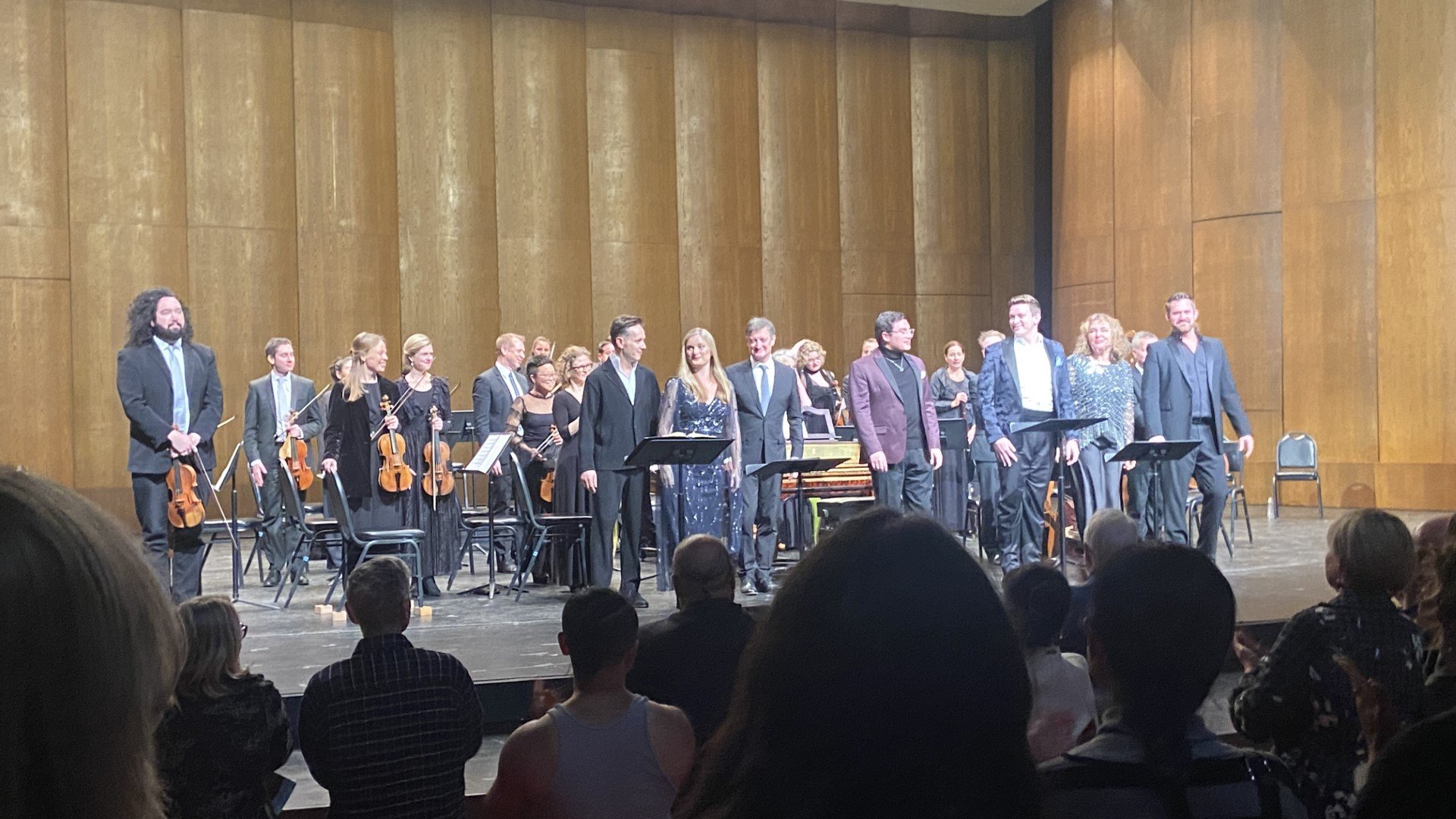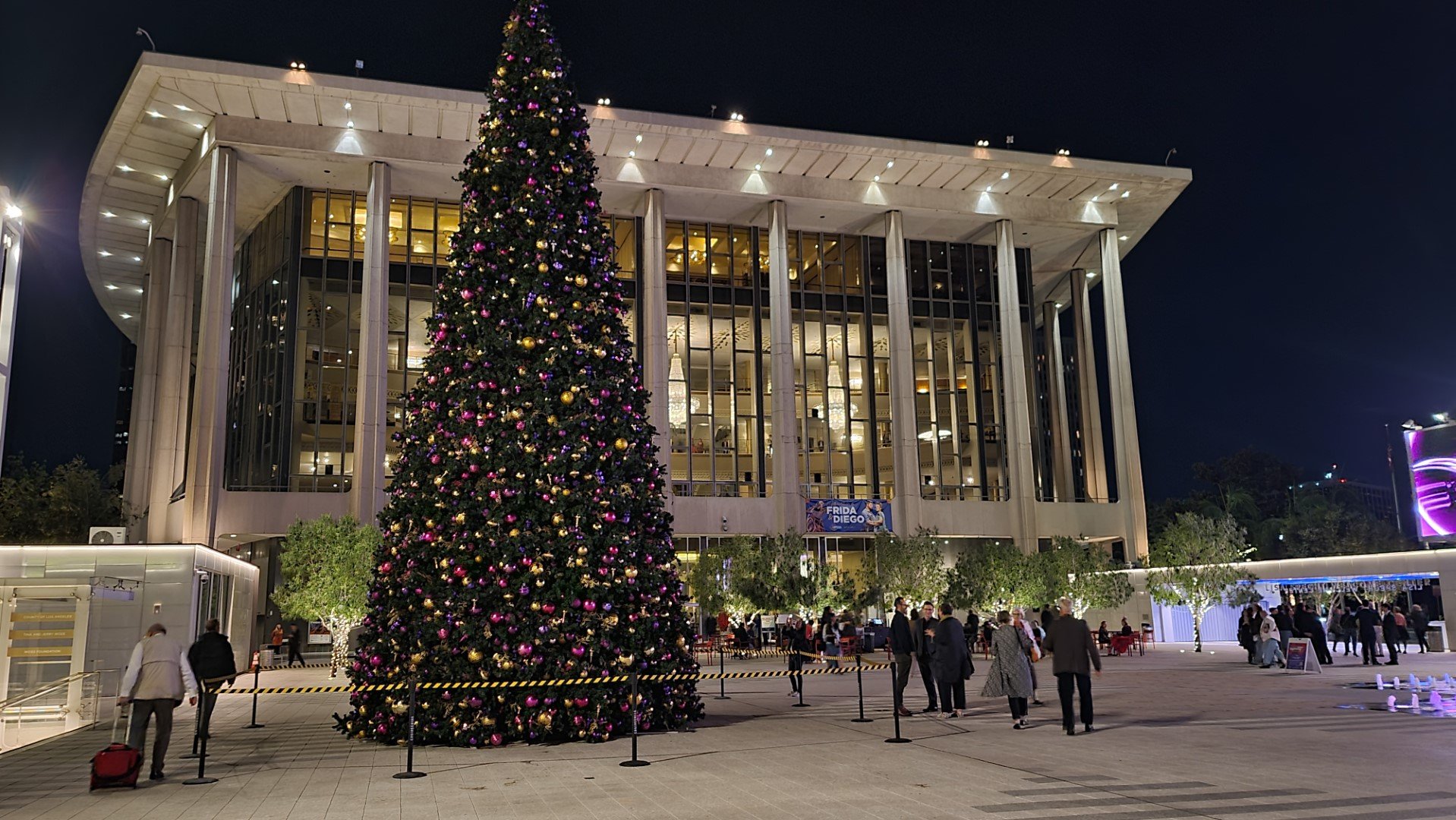'Rodelinda' in L.A., a Baroque gem full of vocal gold
/By Truman C. Wang
11/23/2023
For many people who thought Handel only as the composer of the Messiah, and not of 42 operas (plust 29 quasi-operatic English oratorios), Tuesday evening’s concert performance by The English Concert of Handel’s 1725 Italian opera Rodelinda at the Dorothy Chandler Pavilion was a shocking revelation of Handel’s greatness as an opera composer, and the greatness of Baroque opera as a genre.
Weaving into the convoluted plot and subplots of Rodelinda are genuine human characters and psychology – love, melancholy, irony, doubts, sarcasm, betrayal – in a quick succession of memorable arias and recitatives. If the eighteenth century had reality-TV shows, these characters would fit right in. We would not see such flesh-and-blood characters in Italian opera again until Mozart’s Idomeneo (1780).
After their triumphant Solomon in past March, the British period instruments ensemble returned to Los Angeles on November 21 with another winning cast. The English and American singers were all Baroque specialists, led by the Rodelinda of Lucy Crowe, whose powerfully rich tone, beautiful melodic and rhythmic articulation, and dramatic, discerning da capo ornaments (whether expressing anger or joy) painted a believable portrait of a wife in mourning, and a mother who tries to protect her child. (The silent role of the child, Flavio, is omitted in this presentation, which I felt was a pity.)
The role of Bertarido was written for an alto castrato, the great Senesino. When Handel himself lacked one for a revival, he usually reassigned the role to a woman. But today in the twenty-first century, the tendency is to use countertenors; good countertenors seem to be in abundant supply now, and as a rule they are steadier, less vibrato-prone, than most female singers, meshing better with the vibrato-less sound of the period instruments. Iestyn Davies, the Bertarido, is a bewitching artist. In the cavernous 3,156-seat Dorothy Chandler Pavilion his bravura cadenzas rang out brilliantly, and his gentle cantilena (the famous aria “Dove sei, amato bene”) wafted sweetly through the air. Most of what the composer Johann Joachim Quantz (1697-1773) said about Senesino can be applied to Mr. Davies as Bertarido:
He had a clear, equal and sweet contralto voice, with a perfect intonation and an excellent shake. His manner of singing was masterly. Though he never loaded Adagios with too many ornaments, yet he delivered the original and essential notes with the utmost refinement. He sang Allegros with fire, and marked rapid divisions in an articulate and pleasing manner. His countenance was well adapted to the stage, and his action was natural and noble.
Eric Ferring (Grimoaldo), Aryeh Nussbaum Cohen (Unulfo), Christine Rice (Eduige), and Brandon Cedel (Garibaldo) were all fluent Handelians with clear, accurate voices and stylishly eloquent manners. The recitatives were lively and crisp, propelling the actions along from one memorable musical number to the next.
The English Concert orchestra, featuring period strings, a theorbo, two harpsichords facing each other, two recorders and oboes (played by the same players), performed like a veritable b’rock band – spirited, gripping, thoroughly convincing. (The furious, stabbing strings in arias "L'empio rigor del fato" and “Morrai, si, l’empia tua testa” perfectly mirrored Rodelinda’s flashes of anger.) Conductor Harry Bicket has a fine command of the dance rhythms that underlie so much Handel’s music. Nothing was heavy or labored; three hours flew by quickly. There was much joy in the performance, and where pathos was called for – in the lovers’ farewell duet "L'abbracio" and their sad arias with recorder obbligato – the orchestra accompanied tenderly like a beating heart.
The English Concert has done it again. Here’s hoping for many happy returns. In 2021, they recorded Rodelinda with an even stronger cast, including the exceptional young contralto Jess Dandy as Eduige.
Truman C. Wang is Editor-in-Chief of Classical Voice, whose articles have appeared in the Pasadena Star-News, San Gabriel Valley Tribune, other Southern California publications, as well as the Hawaiian Chinese Daily. He studied Integrative Biology and Music at U.C. Berkeley.




